You have /5 articles left.
Sign up for a free account or log in.
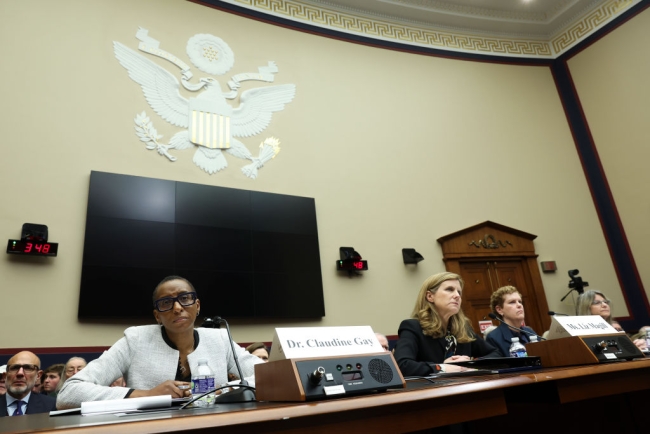
The presidents of Harvard University, the University of Pennsylvania and the Massachusetts Institute of Technology have faced criticism for how their answers at Tuesday’s hearing on campus antisemitism. Experts worry the hearing will further erode trust in higher education.
Kevin Dietsch/Getty Images
The failure of three college presidents to clearly say Tuesday that calling for the genocide of Jewish people violated their campus policies quickly went viral on social media—galling alumni, free speech experts and advocates in the Jewish community alike.
Even the White House chimed in, one day after the contentious four-hour hearing before the House Education and Workforce Committee.
“It’s unbelievable that this needs to be said: calls for genocide are monstrous and antithetical to everything we represent as a country,” Andrew Bates, deputy press secretary for the White House, said in a statement. “Any statements that advocate for the systematic murder of Jews are dangerous and revolting—and we should all stand firmly against them, on the side of human dignity and the most basic values that unite us as Americans.”
By the end of Wednesday, Harvard University president Claudine Gay, one of the panelists, sought to clarify her comments. In a statement, Gay said that some have confused a right to free expression with condoning calls for violence against Jewish students.
“Let me be clear: Calls for violence or genocide against the Jewish community, or any religious or ethnic group are vile, they have no place at Harvard, and those who threaten our Jewish students will be held to account,” she said.
University of Pennsylvania president Liz Magill, who also testified and has faced criticism from the commonwealth’s Democratic governor, Josh Shapiro, also released a video statement Wednesday evening clarifying that calling for the genocide of Jewish people is harassment or intimidation. She pledged to re-evaluate the university’s policies on free speech.
“In that moment, I was focused on our university’s long-standing policies aligned with the U.S. Constitution, which say that speech alone is not punishable,” she said of her testimony. “I was not focused on—but I should have been—on the irrefutable fact that a call for genocide of Jewish people is a call for some of the most terrible violence human beings can perpetrate. It’s evil, plain and simple.”
The high-profile hearing featured sharp criticisms and fiery exchanges over how Harvard University, the University of Pennsylvania and the Massachusetts Institute of Technology have responded to campus protests in support of the Palestinian people and their free speech policies. House Republicans also used their platform to air conservative grievances about higher education more broadly.
As the metaphorical smoke cleared, we wanted to know what the remarkable hearing—which has already spurred more calls for the three presidents to resign—could mean for higher education writ large. Colleges and universities have faced growing skepticism among the American public over the past several years. Just 36 percent of Americans have “a great deal” or “quite a lot” of confidence in higher education, according to a Gallup poll released this summer. Meanwhile, higher education has increasingly come under political attack from conservatives who say colleges and universities aren’t worth the federal investment and are too uniformly liberal to be in touch with everyday Americans.
Inside Higher Ed asked more than a dozen leaders, advocates and scholars the same question: What impact will the hearing have on public opinion and the politics of higher education going forward?
Their responses, provided by phone or email, have been edited for clarity and concision.
Michael Roth, president of Wesleyan University
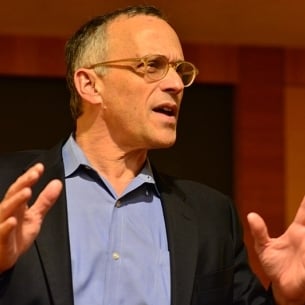
Joe Mabel/Creative Commons
On the one hand, I’m appalled to see antisemitism used as a prop, as it obviously was by the Republicans. At the same time, the presidents made it too easy for them.
I was embarrassed and chagrined that the presidents could not say more than their lawyers told them they should say about condemning a belief that all Jews should be killed. I know it’s a challenging time for higher ed, but I don’t think we rose to the challenge yesterday.
What we saw yesterday is what it means when we play defense, when we’re just sitting there getting attacked for four hours. We need to actually be out there making our case. We need to convince our fellow citizens that we are giving our students the opportunity to make thoughtful choices about the world and have skills that will help them succeed. This hearing is going to make that harder.
Lynn Pasquerella, president of the Association of American Colleges and Universities
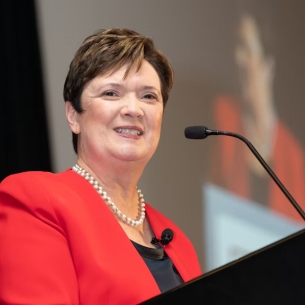
Mike Ferguson/American Association of Colleges and Universities
It became clear from the presidents’ testimony that higher education must play a leadership role in addressing antisemitism and all forms of racial and social injustice. In each case, the president sought to balance the mission of their institutions—that are grounded in the free exchange of ideas and the unfettered pursuit of the truth—with their duties to ensure that their campuses are not only safe, but also places of welcome and belonging.
Many things were troubling, but one of the aspects that was most troubling is that much of the questioning seemed intent on presenting a monolithic portrait of American higher education as liberal indoctrination.
I think this has the potential to have a profound and lasting impact on higher education. We talk a lot about this moment posing an existential crisis for higher education because of that politicization, the proliferation of educational gag orders and the growing mistrust in higher education, accompanied by a precipitous drop in enrollment, especially among those who could benefit most from access to higher education.
This is a moment when we’re seeing completion rates at four-year colleges at 60 percent and two-year colleges as low as 30 percent. We need to ensure that not only people have access to college, but they’re completing college. And this creates new impetus for this disinvestment in higher education at a moment when it’s needed more than ever.
Ted Mitchell, president of the American Council on Education
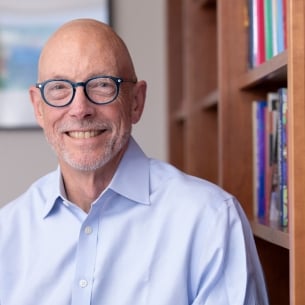
American Council on Education
It was a farce. It wasn’t a hearing; it was a tribunal. It had all the virtues of show trials—no evidence, lots of haranguing, no opportunity for witnesses to develop any kind of argument. I hope the American public was embarrassed.
I think there will be two ways to look at it. The one that I prefer, of course, to look at is exceptional leaders being taunted by some members of Congress but responding thoughtfully, with integrity, and doing what we hope higher education does, which is to expand the debate and not accept simple solutions. So that’s what I hope people take from it … that higher education is alive, well and is represented extraordinarily well by the leaders who were in that unfortunate situation yesterday.
The other, of course, will be people who are looking for red meat, and they’re just looking for headlines and arguments. I’m afraid that members of the Congress were teed up and ready to go, and that was the audience that they were addressing, but I have faith in the American people.
I’ve had members of the United States government calling me expressing regret for what happened yesterday. I think that it was so overboard that there’s not going to be much traction for the naysayers.
Yes, these are really tough times. Yes, there is striking controversy on our campuses. Yes, the boundaries of freedom of speech are being tested every day. I don’t think that we should minimize that. The issues are real and they’re profound. But on campus, what that means is that we have to pay attention to them. We have to give space for disagreement, and we have to teach people how to disagree civilly. And that work goes on. So that happened yesterday before the hearing, it happened today, it will happen tomorrow. That’s the work. I don’t expect that to change at all.
Kenneth Marcus, founder of the Louis D. Brandeis Center for Human Rights Under Law
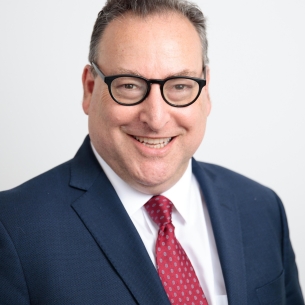
Louis D. Brandeis Center for Human Rights Under Law
I had thought that the main impact of the meeting was the fact that it was held and that it would signal to the higher education world that Congress is focused on this issue. That may still be the case. But the fact is that some of what transpired really is going to have some impact. The inability of the university leaders to speak with moral clarity about calls for genocide is shocking to a lot of people. The double standards that were discussed regarding antisemitism versus other forms of discrimination also has people talking.
I think that members of Congress likely came out of this meeting believing that they really hit a nerve and that this is an issue on which they should continue to focus their attention. I think that this can have an impact on both prospective legislation and also oversight. Many in the Jewish community saw some of their concerns substantiated, perhaps worse than they had expected.
Whether there will be ramifications for any of these leaders in their home institutions, I don’t know. But it is certainly raising greater public awareness of the extent of the problem. For those people who thought that the issue was largely one of discrimination versus free speech, I think there’s an increasing awareness that we’re not just talking about free speech but also violence, assault and harassment.
Hollis Robbins, dean of the College of Humanities at the University of Utah
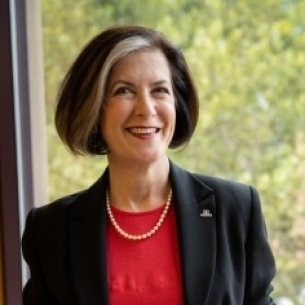
The University of Utah
I think the public would rightly conclude after the House hearings that serious internal conversations about knowledge and expertise simply aren’t happening on college campuses. I heard the word “hateful” a lot, but I don’t think I heard the word “expertise” once. That’s a failure all around. I’ve spoken almost daily with my Middle East Studies scholars since Oct. 7 to better understand the specific history of hate in the region and to assure them I support them in teaching about it. I didn’t hear anything during the hearings about the relationship between faculty expertise and student protests. Where are students getting their information, if not faculty?
Given how many years calls for divestment from Israel have been heard on some campuses, you might have assumed that ways of responding might have evolved to include expert voices: this is why our institution will divest, this is why we won’t; these are the stakes; go work at or attend another university if you don’t agree. Every university does not have to have the same position on Israel.
I think the public would rightly conclude that there’s a disconnect between leadership and what is happening on the ground on campuses, both in the classroom and in social spaces. I don’t think the hearings made higher ed look good. The presidents’ answers made clear that institutions of higher ed are not organized to privilege expertise and knowledge but rather to ensure safety and belonging.
Brendan Cantwell, professor in the higher, adult and lifelong education program at Michigan State University
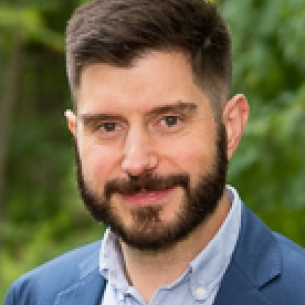
Michigan State University
I thought that it was an opportunity for members of Congress to scold the university presidents more than it was a hearing to understand dynamics on campus.
Opinions are fairly baked in already. Particularly, members of the public who identify as conservative or very conservative already. We have lots of public polling data to show that they believe that higher education is too liberal, interested in excluding conservative people and conservative ideas, and mandating liberal or a left-wing point of view.
I think that view was on display and reinforced in the congressional hearings. Whether it changes many people’s opinions or not, I’m less clear about, but it certainly brings that viewpoint into the limelight, reinforces it and then energizes people’s thinking about that, if they were already inclined to hold that view.
Another thing that was notable: voices from the right, including congressional voices, have been strongly in support of free speech. They have often decried what they perceive as efforts to silence conservative speakers because of their viewpoint. They’ve been very concerned about that, but it’s clear that concern runs in one direction. They’re interested in protecting the speech of people who they see as ideologically aligned with them and not so interested in protecting the speech of people who disagree with them.
This was an opportunity for congressional Republicans to make their views appear mainstream and the same as [President Biden’s] views or the public consensus when what they were doing was more than saying, “We condemn antisemitism.” They were saying that complicated conversations on geopolitics, history and Zionism can’t take place.
Jonathan Greenblatt, CEO and national director of the Anti-Defamation League
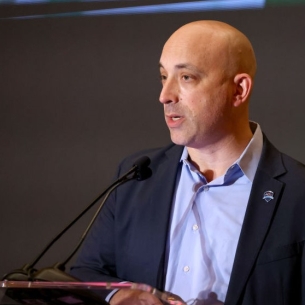
JP Yim/Getty Images for The Asian American Foundation
The shameful performance of the university presidents at yesterday’s congressional hearing was as disheartening as it was disastrous. Calls to genocide are always wrong, never context-dependent.
If there was a silver lining, at least now the U.S. Congress and the American people have a sense as to what is happening, not only at Harvard, MIT and Penn, but on campuses across the country. Jewish and Israeli students are facing a tsunami of antisemitism and the universities are failing to protect them. As a first step, the student organizations that bully and harass them should be suspended, full stop, and the institutions either need to revisit their codes of conduct or reconsider their leaders altogether.
Irene Mulvey, president of the American Association of University Professors
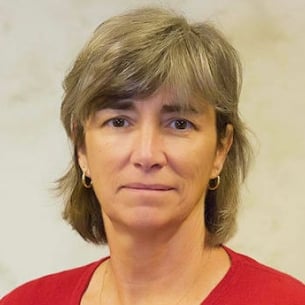
Fairfield University
Freedom of expression in colleges and universities can and must co-exist with maintaining the safety of all members of the campus community. Academic freedom—protecting free and open inquiry—is a cherished value that has helped establish the U.S. educational system as a model for higher education across the world. Academic freedom protects a wide range of expression inside and outside the classroom, including controversial ideas that some may consider wrong or offensive.
At the same time, colleges and universities have enforceable codes of conduct that prohibit speech that crosses the line into threats of harm or that constitutes harassment against individuals because of characteristics such as race, gender, religion, national origin or disability. And so, colleges and universities can and should enforce these limits on speech in ways that protect the safety of the campus community while also upholding faculty and student rights to engage in heated debates and disagreement about difficult and controversial ideas.
Tuesday’s hearing illustrates the difference between the kind of nuanced and thoughtful conversations on these priorities that take place on college campuses and the prosecution-type hearings that take place on Capitol Hill. The hearings will have the effect, perhaps intended, of further polarizing an already polarized nation, fanning the flames of intolerance and further demonizing higher education in the public’s mind.
Tom Ginsburg, the University of Chicago’s Leo Spitz Professor of International Law, faculty director of the University of Chicago Forum for Free Inquiry and Expression
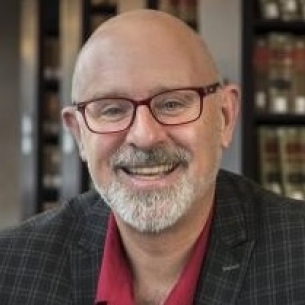
University of Chicago Law School
Higher education has become a political football, and in the short term, the hearing is likely to accelerate public distrust of universities. The presidents did not rise to the occasion of explaining how, in a country governed by the First Amendment, we do and must tolerate lots of hateful speech, even on campus.
But Title VI does not tolerate a hostile learning environment for recipients of federal funds, and that allows some restriction of speech that is otherwise protected by the First Amendment. It was not addressed in the clips that I saw. The hearing highlighted the hypocrisy of campuses, which have been very aggressive in policing speech on race, gender and other issues but haven’t paid much attention to religion in general, and Judaism and Islam in particular.
Antisemitism is not self-defining, and many of those calling for “intifada” do not think they are calling for genocide. I don’t think we ought to constrain the use of slogans calling for the elimination of a state, but it is also the case, as the DEI administrators have told us for some time, that “speech has consequences.”
The fact is that we can and should have a public debate on Israel and Palestine, and campuses have to be a part of that. Our particular job, which we’ve not done well, is to construct opportunities for genuine conversation about the issues so that we all can learn, and maybe even change our minds. I do not favor federal regulation as a solution, but universities simply have to do better and have to also be able to explain what we are doing to the public. Democracy requires strong universities to help solve the huge challenges facing society.
Ivory Toldson, professor in the School of Education at Howard University and national director of education for the NAACP
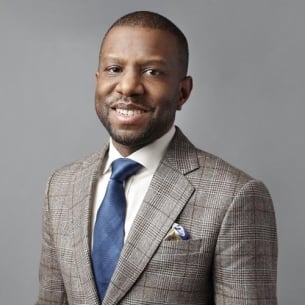
Howard University
The hearing on campus antisemitism, while addressing a critical issue, unfortunately seemed to be marred by political posturing. The focus appeared to be less on finding real solutions to combat antisemitism and more on criticizing diversity, equity and inclusion efforts, which are essential for fostering a safe and inclusive environment for all students.
The rise of antisemitism, coupled with the troubling increase in Islamophobia, underscores the urgent need to bolster DEI initiatives. These programs are not the cause of division; rather, they are a means to bridge gaps, educate and promote understanding among diverse student populations. It is through comprehensive DEI efforts that we can address the root causes of hate and discrimination.
However, the political nature of the hearing, with its accusatory tone and lack of substantive dialogue, suggests that it will have little effect on changing the politics or public opinion regarding higher education. The credibility of these members of Congress has been called into question due to their apparent inability to rise above partisan lines and work collaboratively towards genuine progress.
While the hearing brought attention to the issue of campus antisemitism, it is imperative that we move beyond political theater and commit to meaningful DEI work that addresses all forms of bigotry, including antisemitism and Islamophobia. Only then can we hope to create a truly inclusive academic community.
Nancy Harrowitz, director of Boston University’s Elie Wiesel Center for Jewish Studies and coordinator of BU’s Holocaust, genocide and human rights studies programs
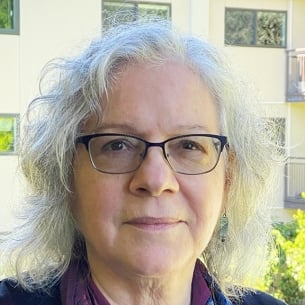
Boston University
There are very few institutions of higher education who are showing firm moral and ethical leadership in these difficult times. Their students are frightened, and yet the administrations do not respond in meaningful ways. They should follow the example of President Biden, who has taken a strong stand on the unacceptability of antisemitism and Islamophobia.
The hearings are a big step forward in informing the public about several important issues: rising antisemitism, what we are doing about it and, last, what the college presidents who testified are doing about it. It was clear to me that some of the answers regarding administrative response, especially from Harvard, were so vague as to be meaningless, and I found that very discouraging.
Part of the problem is that Jewish and Muslim students are not part of DEI, and so prejudice towards them is often ignored.
Kenneth Stern, director of the Bard Center for the Study of Hate and author of The Conflict Over the Conflict: The Israel/Palestine Campus Debate
I’m not sure I can predict the impact of one hearing on either public opinion or politics. That said, I’m concerned that people may believe the way to combat antisemitism is to suppress speech some find hateful, including through law, a strategy that may make some feel better but will backfire.
The campuses that have handled the moment better have instead done two things: 1) they’ve made clear that while harassment, intimidation and bullying are not allowed, deep disagreement—even that which some see as hateful—is protected, and 2) their faculty provide forums and promise new classes for students to delve into the complexities around Israel-Palestine, including why people have such divergent views, and how to understand the meaning of words like “antisemitism,” “settler colonialism,” “genocide” and so forth, rather than be content flinging them around as rhetorical weapons.
Mehnaz Afridi, professor of religious studies and director of the Holocaust, Genocide and Interfaith Education Center at Manhattan College
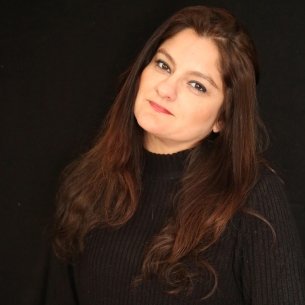
Manhattan College
In general, public views of higher education have changed from a decade ago, on many issues: the cost of higher education, liberal arts, how to get a technical degree. The general opinion will be, “Oh, these schools are all about being liberal,” but that’s a stereotype. There might be a good public conversation of what is the purpose of higher ed, and it’s critical thinking, creating a dialogue and giving real, historical information and facts.
We do have certain ways of saying, “Yes, you may protest; you have freedom of speech, but freedom of speech is not freedom of hate.” The way forward must be dialogue. For leaders of higher education institutions, a lot of a president’s job is to fundraise—but it’s also to create a very healthy climate where Jews and Muslims are not fearful of their life. That’s where I stand as a Muslim woman with a Holocaust center.
La’Nita Johnson, director of training and partnership development, Higher Education Polarization and Extremism Research Innovation Lab (PERIL) at American University

American University
The recent testimonies featuring Harvard, MIT and Penn presidents before Congress underscore a critical dilemma: the insufficiency of universities merely reacting to hate-fueled incidents. Overlooked in these congressional discussions is the pivotal need for proactive measures within campus settings. It’s crucial to acknowledge the necessity of an approach that surpasses reactive crisis responses.
When government leaders attribute an environment of antisemitism to higher education institutions, they neglect the crucial establishment of resilience beforehand, fostering grounds for effective dialogue before incidents occur.
While testimonies often focus on how institutions react to specific incidents, it’s pressing to stress the significance of preventive actions. Institutions must not merely react but invest in measures addressing the root causes of these incidents. That means advancing our efforts beyond higher education, with a holistic approach encompassing the K-12 education system. Preventative strategies at both levels can markedly reduce hate-related occurrences.
In such a politically charged environment, these testimonies have repercussions beyond immediately the proceedings and the interest they generate. These testimonies highlight the importance of effective communication, aligning institutional values and advocating for a proactive strategy against hate, polarization, conspiracy theories and other issues eroding our social cohesion.
Shaun Harper, executive director of the University of Southern California Race and Equity Center
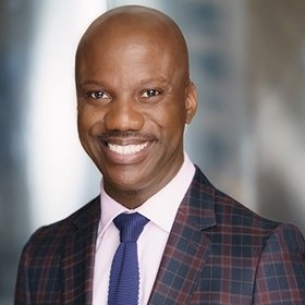
University of Southern California
For two months now, many higher ed leaders have desperately sought guidance on how to manage the Israel-Palestine war. It’s been less about how to address the rising levels of antisemitism and Islamophobia on their campuses, more about managing the political intensity.
Surely, many of them watched the congressional hearing and felt relieved that it wasn’t them in that particular hot seat. But really, in many ways, what Presidents Gay, Magill and Kornbluth experienced on Capitol Hill isn’t too different from the grilling that many presidents are experiencing locally. This pressure won’t end anytime soon. In fact, I predict it will intensify.



